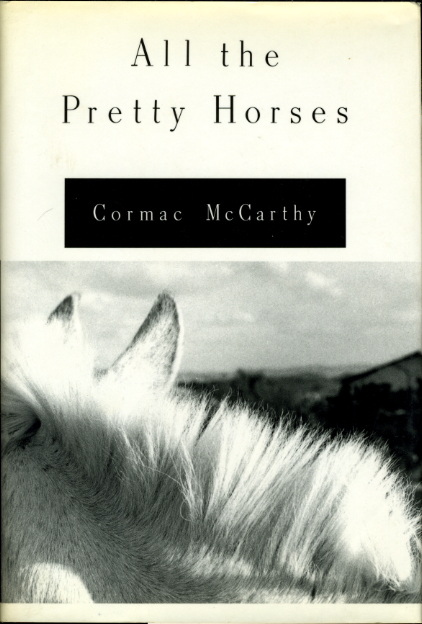Cormac McCarthy wrote All the Pretty Horses in 1993. I confess: I judged by the title that this wasn’t a book that I’d be particularly interested in. I was wrong. It’s set in the border regions of Texas and Mexico during the late 1940s.
Here’s the thing about Cormac McCarthy’s writing style. First, he doesn’t use quotation marks so it takes a few pages to get onto the dialogue. Secondly, his writing is generally pretty spare. Dialogue; action. Grady said this; Rawlins did that.
But then, smack in the middle of the book, there’s a several-page digression on the topic of choice vs. fate. I didn’t see it coming, and I was mesmerized—the more so because it was framed by a story that illustrated the questions.
As soon as I finished All the Pretty Horses I started reading another book in the “Border Trilogy” called The Crossing and it is the same spare writing until…Bam! McCarthy raises questions about a God who allows disaster and suffering. But again, it’s nestled in the middle of a Western. And such a perfect place for it.
A couple quotes from All the Pretty Horses:
“Because the question for me was always whether that shape we see in our lives was there from the beginning or whether these random events are only called a pattern after the fact. Because otherwise we are nothing.”
“I wanted very much to be a person of value and I had to ask myself how this could be possible if there were not something like a soul or like a spirit that is in the life of a person and which could endure any misfortune or disfigurement and yet be no less for it. If one were to be a person of value that value could not be a condition subject to hazards of fortune. It had to be a quality that could not change. No matter what. Long before morning I knew that what I was seeking to discover was a thing I’d always known. That all courage was a form of constancy. That it was always himself that the coward abandoned first. After this all other betrayals came easily.”
“In history there are no control groups. There is no one to tell us what might have been. We weep over the might have been, but there is no might have been. There never was. It is supposed to be true that those who do not know history are condemned to repeat it. I don’t believe knowing can save us. What is constant in history is greed and foolishness and a love of blood and this is a thing that even God–who knows all that can be known–seems powerless to change.”
Cormac McCarthy also wrote The Road and No Country for Old Men. Check him out.
-Azy
p.s. In 2000 Matt Damon and Penelope Cruz starred in the movie adaptation of All the Pretty Horses. I have no plans to watch it.
(Photo Source: Amazon)

Think people should hear about this?